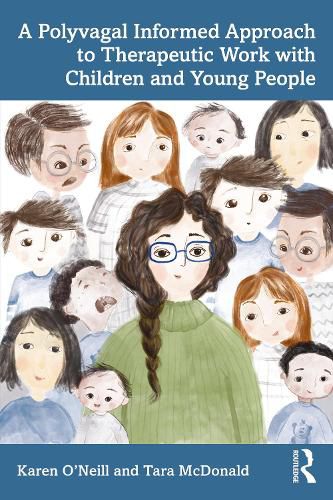Readings Newsletter
Become a Readings Member to make your shopping experience even easier.
Sign in or sign up for free!
You’re not far away from qualifying for FREE standard shipping within Australia
You’ve qualified for FREE standard shipping within Australia
The cart is loading…






A Polyvagal Informed Approach to Therapeutic Work with Children and Young People presents a guide to best supporting children and young people through a polyvagal lens.
Through this neurophysiological framework of the Polyvagal Theory, the authors consider why children adopt protective strategies, unravelling the mysteries of the nervous system, emotions, and social connection. Linking aspects of attachment theory, developmental trauma, and adverse childhood experiences, the authors explore what shapes behaviour. They delve into perspectives of play and metaphor within the context of the Polyvagal Theory, utilising six storytellers who bring this theory to life, embodying real struggles and highlighting the adaptations children make for survival. Throughout this book, clear explanations, practical examples, and actionable strategies are offered to help the reader to understand and apply a polyvagal framework when working with children and young people.
This text is an accessible and important resource for all qualified child therapists, trainees, and professionals interested in the mental health of children and young people.
$9.00 standard shipping within Australia
FREE standard shipping within Australia for orders over $100.00
Express & International shipping calculated at checkout
A Polyvagal Informed Approach to Therapeutic Work with Children and Young People presents a guide to best supporting children and young people through a polyvagal lens.
Through this neurophysiological framework of the Polyvagal Theory, the authors consider why children adopt protective strategies, unravelling the mysteries of the nervous system, emotions, and social connection. Linking aspects of attachment theory, developmental trauma, and adverse childhood experiences, the authors explore what shapes behaviour. They delve into perspectives of play and metaphor within the context of the Polyvagal Theory, utilising six storytellers who bring this theory to life, embodying real struggles and highlighting the adaptations children make for survival. Throughout this book, clear explanations, practical examples, and actionable strategies are offered to help the reader to understand and apply a polyvagal framework when working with children and young people.
This text is an accessible and important resource for all qualified child therapists, trainees, and professionals interested in the mental health of children and young people.